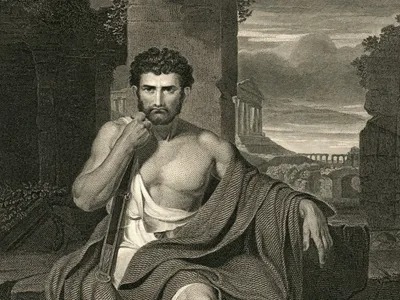Gaius Marius, an influential figure in ancient Roman history, stands out as a prominent military leader and political reformer whose legacy endures through the annals of time.
This comprehensive article delves into the multifaceted life, remarkable achievements, and lasting impact of Gaius Marius.
To offer an in-depth exploration, we will meticulously dissect various aspects of his life and legacy, ranging from his early years, military exploits, political ascent, to the enduring significance of his reforms.
Early Life and Background
Gaius Marius’s journey began on January 17, 157 BC, in the modest town of Arpinum, nestled in the heart of Roman Italy.
Unlike many of his contemporaries, who hailed from illustrious backgrounds, Marius emerged from humble origins.
Born into a middle-class family, he faced a distinct set of challenges and opportunities that would ultimately shape his destiny.
Marius’s formative years were marked by his relentless pursuit of knowledge, burgeoning interest in military affairs, and an unwavering determination to transcend his societal station.
He received a rudimentary education in Arpinum before embarking on a transformative journey to Rome, where he sought to expand his horizons.
During this period, he developed an enduring fascination with the Roman legions, laying the foundations for his future military career.
Military Career
The annals of history remember Gaius Marius for his extraordinary military career, distinguished by exemplary leadership, unyielding resilience, and an unwavering commitment to the Roman Republic. Marius initially commenced his military journey as a junior officer, but his meteoric rise through the ranks bore witness to his exceptional talent and indomitable spirit.
Notably, Marius’s military service found its zenith during his campaigns against the Numidian King Jugurtha. In 107 BC, Marius was entrusted with the pivotal role of leading the Roman forces in the protracted Jugurthine War.
Through innovative strategies, unwavering discipline, and the remarkable ability to inspire his troops, Marius achieved the capture of Jugurtha in 105 BC.
This significant victory brought an end to a protracted conflict, solidifying Marius’s reputation as a brilliant and capable general.
Marius and the Marian Reforms
Gaius Marius’s enduring legacy lies significantly in his pivotal role in initiating the Marian Reforms, a set of military and political transformations that left an indelible mark on the Roman Republic.
These reforms, implemented during Marius’s consulships in 107 BC and 104 BC, ushered in a new era in the Roman military.
The Marian Reforms introduced a slew of changes that redefined the Roman army. Central to these reforms was the enlistment of landless citizens into the legions, the standardization of equipment, and a profound shift towards a professional, standing army.
This transformation marked a departure from the traditional reliance on property-owning citizens who served as part-time soldiers.
Instead, Marius’s reforms rendered the army more efficient and loyal to its generals, rather than to the state—a development that would play a pivotal role in the eventual collapse of the Roman Republic.
Political Career and Conflict with Sulla
The political trajectory of Gaius Marius closely mirrored his military achievements. His growing influence and popularity, fueled by his military successes and far-reaching reforms, propelled him to numerous consulships and leadership positions within the turbulent realm of Roman politics.
However, this ascent was not without its challenges and adversaries, chief among them being his nemesis, Lucius Cornelius Sulla.
The intense rivalry between Marius and Sulla escalated to a perilous level, eventually culminating in the First Mithridatic War.
In this conflict, Sulla was appointed to lead Roman forces in the East, further straining their relationship and wielding profound implications for the stability of the Republic.
The Social War and Marius’s Decline
The Social War (91-88 BC), also known as the Marsic War, emerged as a pivotal moment in Roman history. It witnessed a coalition of Rome’s Italian allies demanding Roman citizenship rights.
During this period, Marius’s involvement was marked by a decline in his health and political influence. The aging general was no longer the formidable military leader he once was, and his role in the war was restricted.
As the Social War unfolded, a new generation of leaders, including the likes of Lucius Cornelius Sulla, emerged, further diminishing Marius’s influence in Roman politics.
This era marked the beginning of the end for Marius’s political career, as his contributions dwindled in significance.
Marius’s Death and Legacy
Gaius Marius’s final years were marred by personal tragedy and political setbacks. In 86 BC, while Sulla held sway over Rome, Marius sought refuge in Africa.
His return to Italy in 87 BC was marked by a short-lived seventh consulship but ultimately led to his demise.
On January 13, 86 BC, Gaius Marius passed away, leaving behind a complex legacy that continues to captivate historians and scholars.
His military reforms wielded a profound and lasting influence on the Roman army, reshaping its structure and character for generations.
Nevertheless, his political career, defined by intense rivalry and internal strife, contributed to the gradual erosion of the Roman Republic’s institutions.
